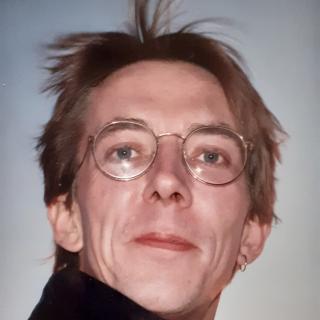Jon Karlsson was born on 14 May 1953 in Iceland. He completed his diploma in nursing at the Icelandic School of Nursing in 1981 and worked as a post-operative nurse at Reykjavik hospital, gaining experience in orthopaedic surgery, accident and emergency care, and neurosurgery.
The Icelandic Red Cross hired Jon, who completed its training course for future delegates in April 1985. Later that year the National Society seconded him to the ICRC, which sent him on his first assignment in August. That was a six-month posting to Khao-I-Dang hospital in Thailand, where Jon worked as a ward nurse with post-operative patients. Jon’s supervisors immediately recognized his potential, noting his outstanding performance and excellent leadership qualities.
For his next assignment, Jon was sent to Quetta, Pakistan, where he worked as head nurse in the ICRC’s surgery hospital from September 1986 to March 1987. Jon proved his mettle amid a heavy workload. The following year, the ICRC urgently needed the services of a surgical ward nurse in the same Quetta hospital and asked Jon to step into the breach for a month – from early June to early July 1988. His previous experience there served him well, as he was able to brief his colleagues on the local situation prior to their arrival.
The international and local staff who worked with Jon appreciated him for more than just his nursing skills: they considered him a very enjoyable person to be around. He was well-organized, diplomatic and able to remain calm under pressure, and he had a much-appreciated sense of humour. And his addiction to caffeine was an endearing quirk – he travelled with his own coffee pot and an abundant supply of coffee.
At the start of 1989, the ICRC assigned Jon to the organization’s surgical hospital in Kabul, Afghanistan. This posting was longer than previous ones, lasting from March to November, and Jon again showed that he was comfortable working in hectic conditions and a less-than-ideal security situation. After a short break, Jon went on to the ICRC’s subdelegation in Herat, Afghanistan, for five months, from January through to June 1990. His supervisor noted Jon’s sense of initiative and the ease with which he carried out his responsibilities at the field dispensary. (On the downside, one of Jon’s housemates at the time noted, in less praiseworthy terms, his struggle to learn the saxophone.) Soon after Herat came Jon’s sixth assignment – and his longest one, at nine months – for which he was sent to the city of Bor, in South Sudan. From September 1990 to June 1991, Jon served double duty as a field nurse and surgical ward nurse. His work, including his teaching programme, was again widely hailed.
In March 1992, Jon was posted to Kabul for a second time, with the position of field nurse. This was an exciting time for Jon, who had married British Red Cross nurse Jennifer Hayward a couple of months earlier; he was also planning on taking a long break from the ICRC after that posting. However, it was a particularly unstable time in Kabul, as the civil war that had been plaguing the country since 1989 was coming to a chaotic end. On 22 April, less than one month into his assignment, Jon was shot dead on the streets of Maidan Shar, south of Kabul, while evacuating a wounded civilian. The gunman was immediately apprehended by the surrounding crowd. Jon was 38 years old.
Jon was a picture of quiet energy: he never seemed rushed but accomplished so much. He was also a pillar of strength in turbulent times, with his focused and reassuring – yet light-hearted – manner. In 1993, Jon was posthumously awarded the Henry Dunant Medal.
